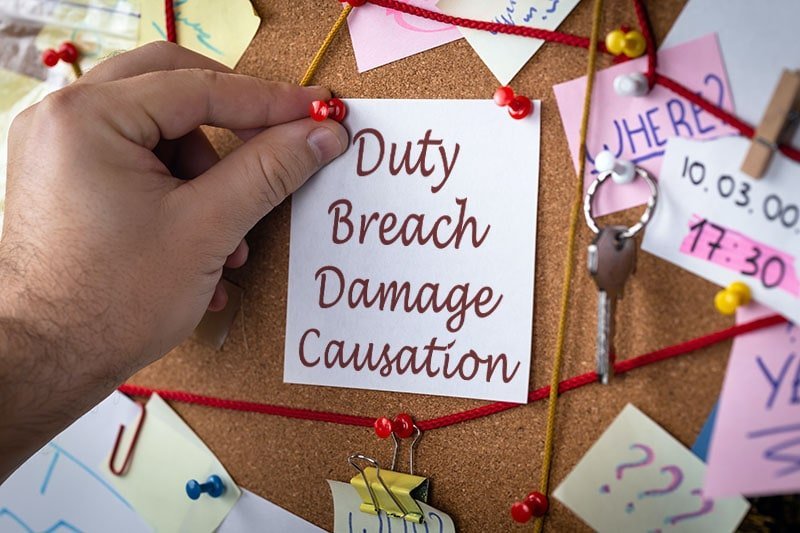Business |
Breach of Fiduciary Duties and When to Consider Litigation

Unfortunately, it is not uncommon to hear of company directors (or those in a position of power) who breach fiduciary duties by abusing their authority to gain benefits for themselves.
Breach of fiduciary duties can cause the company to suffer losses, and, as a result, shareholders to suffer a dip in their investments. In these circumstances, legal action may be considered to seek remedies or damages from the fiduciaries.
Who is a fiduciary?
In essence, a fiduciary is an individual who has discretionary power in acting on the behalf of other persons or entities (the principal).
It is important to note that a fiduciary is legally and ethically bound to act in his or her principal’s interest.
Fiduciaries are commonly associated with commercial company directors, investment fund managers, trustees, estate administrators, doctors and lawyers.

What are fiduciary duties?
Fiduciary duties mainly include the following:
- Acting in good faith
- Avoiding conflict of interest
- Not profiting from the fiduciary position
- Executing with utmost skill and care
1. Acting in good faith
This means that the fiduciary must always act honestly and with a fidelity to the principal.
All information relevant to the relationship must be disclosed truthfully and clearly. In addition, the fiduciary must always be fair, reasonable and objective in making decisions in the interest of the principal.
2. Avoiding conflict of interest
As a relationship built on trust and empowerment, a fiduciary must actively avoid conflicts of interest.
For example, he or she should not be working for any other competitors of the principal.
3. Not profiting from the fiduciary position
Fiduciaries have access to the principal’s assets and can exercise freedom to make decisions on behalf of their principal. However, they must never abuse such authority for individual benefit.
For example, the fiduciary must not favour any business supplier or partner that he or she has vested interest in.
4. Executing with utmost skill and care
Exemplary management is the heart of any fiduciary/principal relationship, particularly for commercial ones. In a nutshell, a fiduciary must discharge his or her duties with due diligence and efforts.
As part of protecting the principal’s interest, the fiduciary must at all times ensure that their actions also comply with regulatory requirements. Such requirements can come in the form of statutory duties laid down in the Companies Act.

Breach of fiduciary duties can happen in the following ways (this list is not exhaustive):
- Choosing a third-party vendor based on personal preference rather than on objective grounds.
- Misusing assets belonging to the principal to gain own profit.
- Taking away a business opportunity that is intended for the principal.
- Engaging in insider trading.
- Misrepresenting or withholding essential information (potential conflicts of interest or business opportunities).
- Disclosing confidential information of the principal.
When should you consider litigation?
Litigation should be considered when the principal can prove that his or her interests have been compromised due to the negligence of the fiduciary.
Factors to consider before litigation
As straightforward as the above scenarios might sound, there are additional crucial factors to note when considering litigation:
1. Elements to prove breach of fiduciary duties
It is grossly insufficient to merely suspect a breach of fiduciary duty. As the plaintiff, neither can you purely claim that you believe your interest might be adversely affected in the future.
However, it is often difficult for the principal to establish evidence; thus, hiring a credible and experienced lawyer who can piece together missing information is extremely important.
A professional lawyer should execute, to their utmost ability, the following in lawsuits:
Duty
A lawyer should assist the plaintiff in demonstrating that a fiduciary duty exists. This could involve substantial investigation depending on the circumstances involved.
For example, if your fiduciary has signed a written contract with you (the principal), your lawyer must be able to prove through this contract that the fiduciary is legally bound to you.
Breach
The plaintiff must have actual evidence on hand that a breach did occur, since it is inadequate to only suspect a breach or breaches.
For instance, if you (the principal) are a stakeholder and had your investment severely reduced, your lawyer must prove that it was due the company director’s (fiduciary’s) failure to disclose certain crucial information to you.
Damage
Not only must a plaintiff show evidence of fiduciary breach, he or she must also show proof of loss or damage. No lawsuit is possible without actual damage incurred.
Causation
Causation must also be proven—there must be an association between your evidence and the damages incurred.
Whether the damage was caused directly or indirectly by your fiduciary, your lawyer must be able to attribute it to their actions or negligence.

2. Cost of litigation
Litigation can often be expensive and time-consuming. In some cases, your lawyer will advise you not to bring the matter to court if the claim amount is less than the legal costs involved.
Furthermore, if you are obtaining a judgement in your favour, you may want to find out if the other party has sufficient assets to pay you back.
Hence, before pursuing litigation proceedings, it is typically recommended to explore other options such as negotiation and mediation for a more affordable and hassle-free process.
What happens if I decide on litigation?
If you are confident about proving your case, you could claim damages in the form of monies, income, property or others depending on the specifics of your lawsuit.
Outside of damages, the following remedies are also available in Singapore:
- Rescission of a contract that involves a breach of fiduciary duty.
- Equitable compensation payable by the fiduciary to the beneficiary.
- An account of the ill-gotten profits payable by the fiduciary to the beneficiary.
- Proprietary remedies (i.e. transferring the title of an ill-gotten property from the fiduciary to the beneficiary).
- Injunctions or specific performance that stop the fiduciary from committing a breach.
Seeking legal advice for a breach of fiduciary duties
As highlighted above, breaching of fiduciary duty cases requires substantial time and expertise to prove. If your interests have been compromised but you are uncertain about whether to proceed with litigation or not, feel free to contact us.

Delivering Solutions not just Answers to your legal disputes
We provide solutions to the table for all our clients regardless of the scale or complexity of the cases. Let us know how we can help.
Contact UsAny information of a legal nature in this blog is given in good faith and has been derived from resources believed to be reliable and accurate. The author of the information contained herein this blog does not give any warranty or accept any responsibility arising in any way, including by reason of negligence for any errors or omissions herein. Readers should seek independent legal advice.

